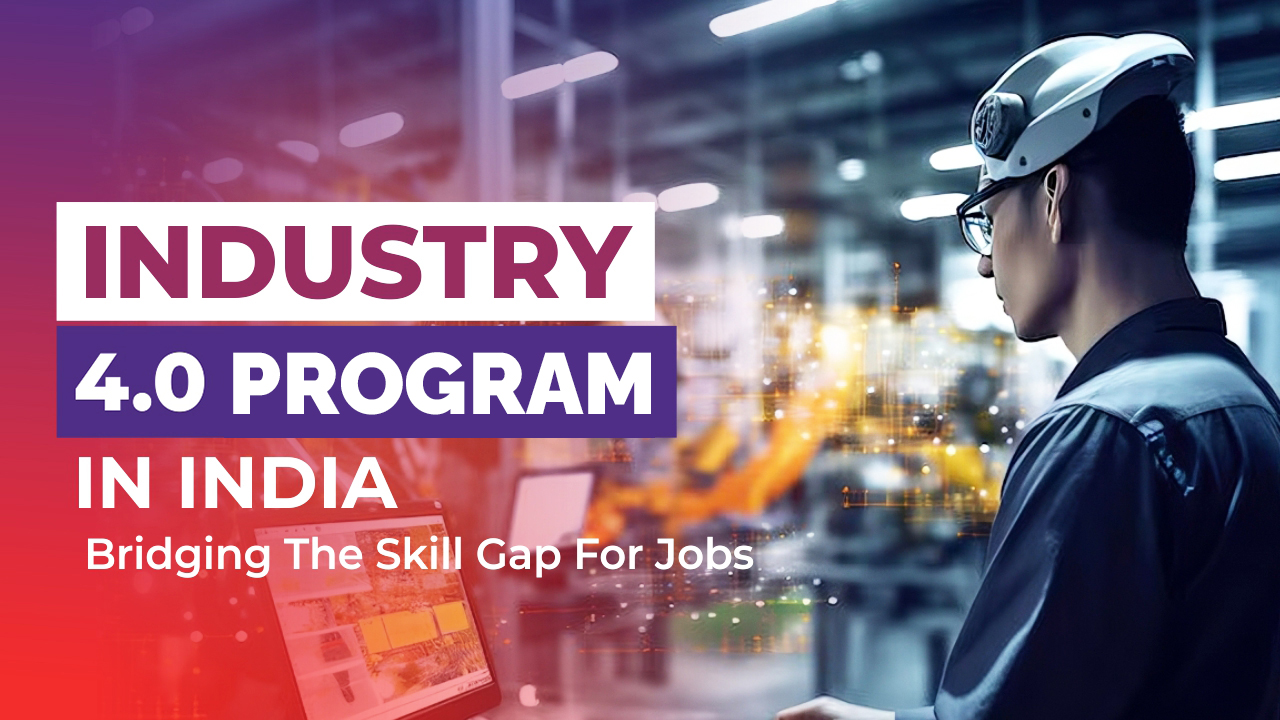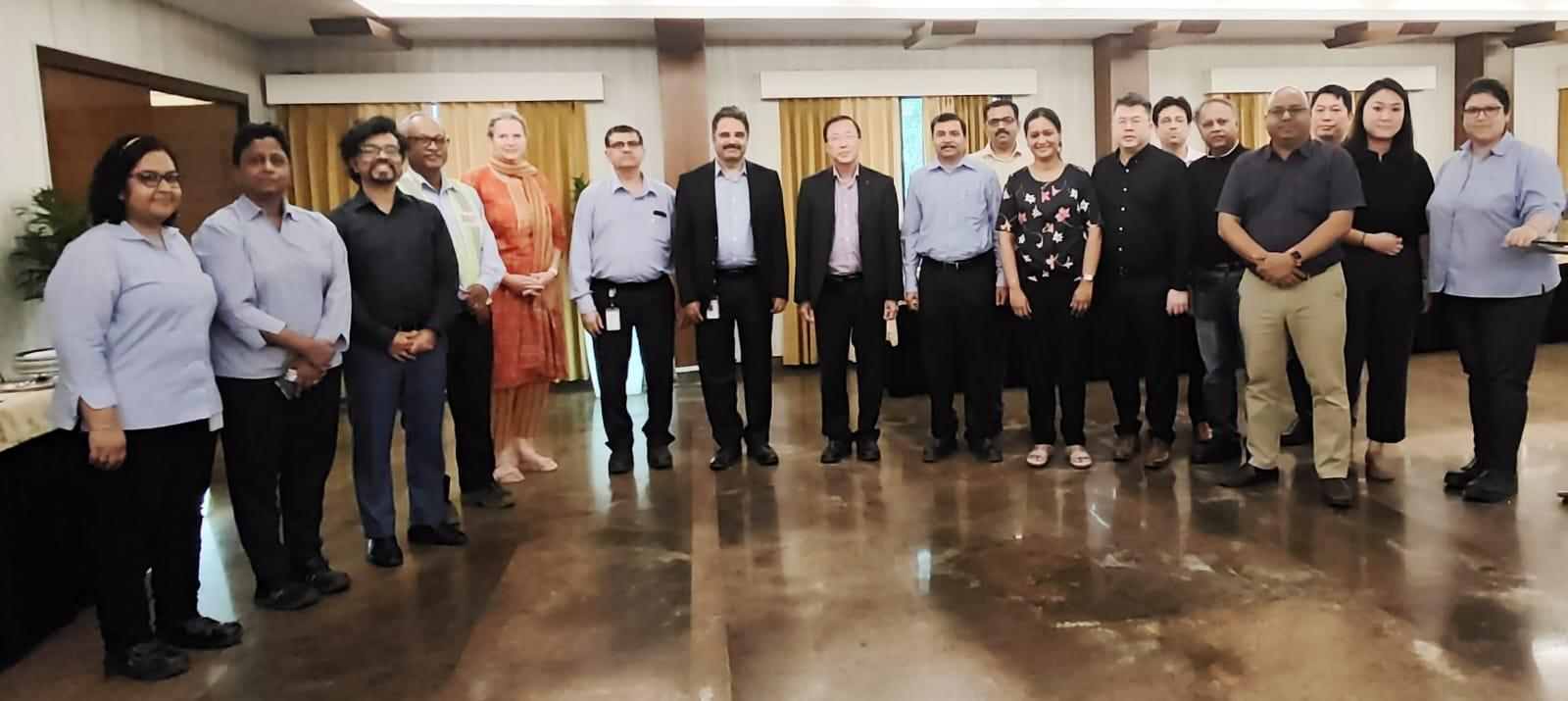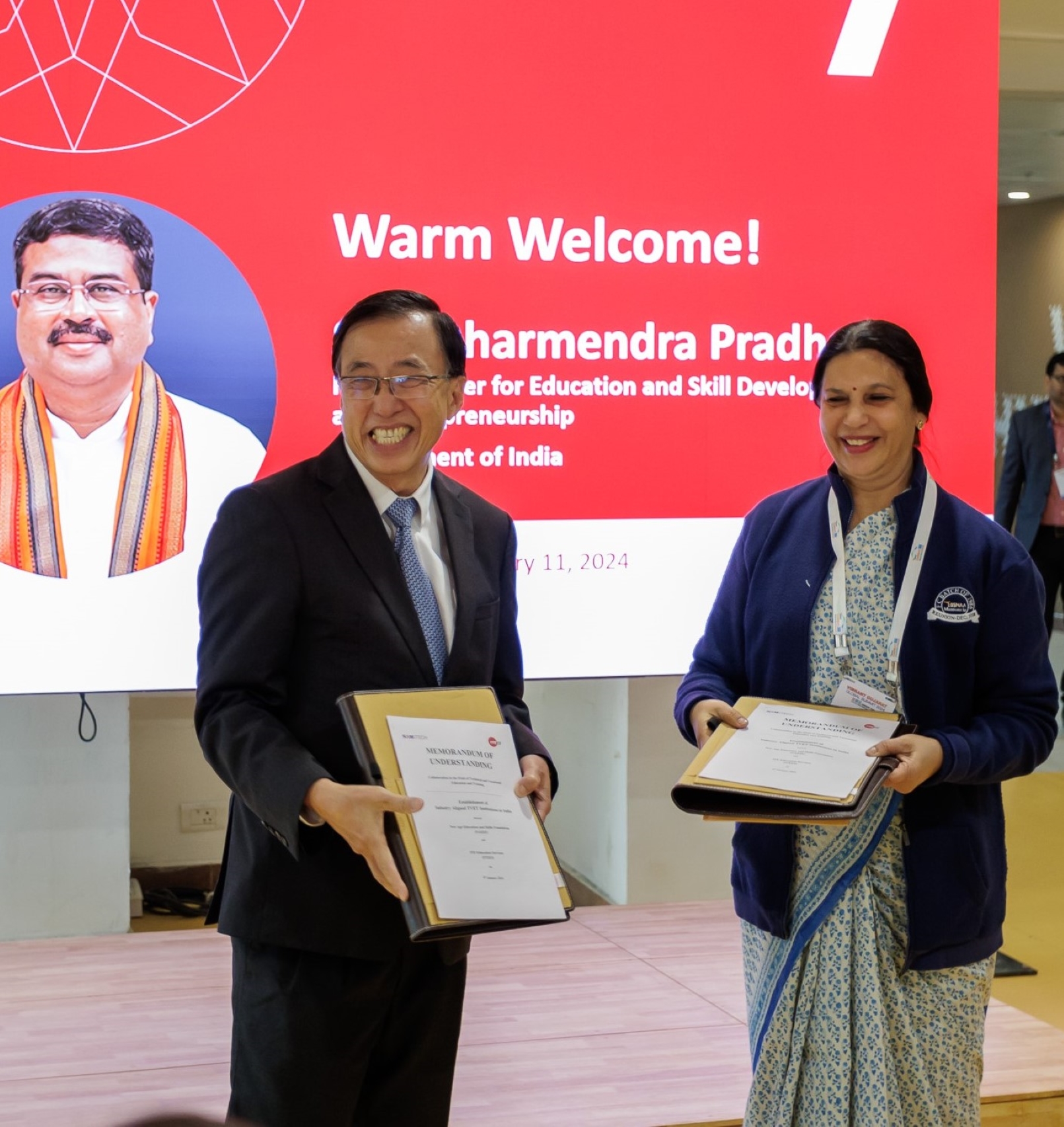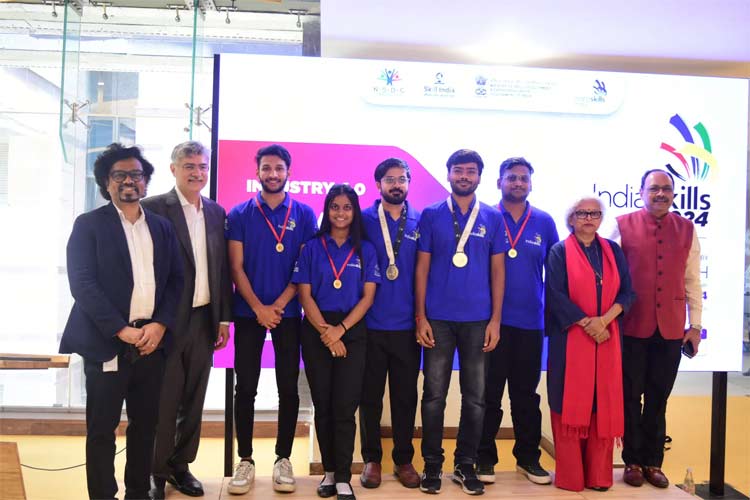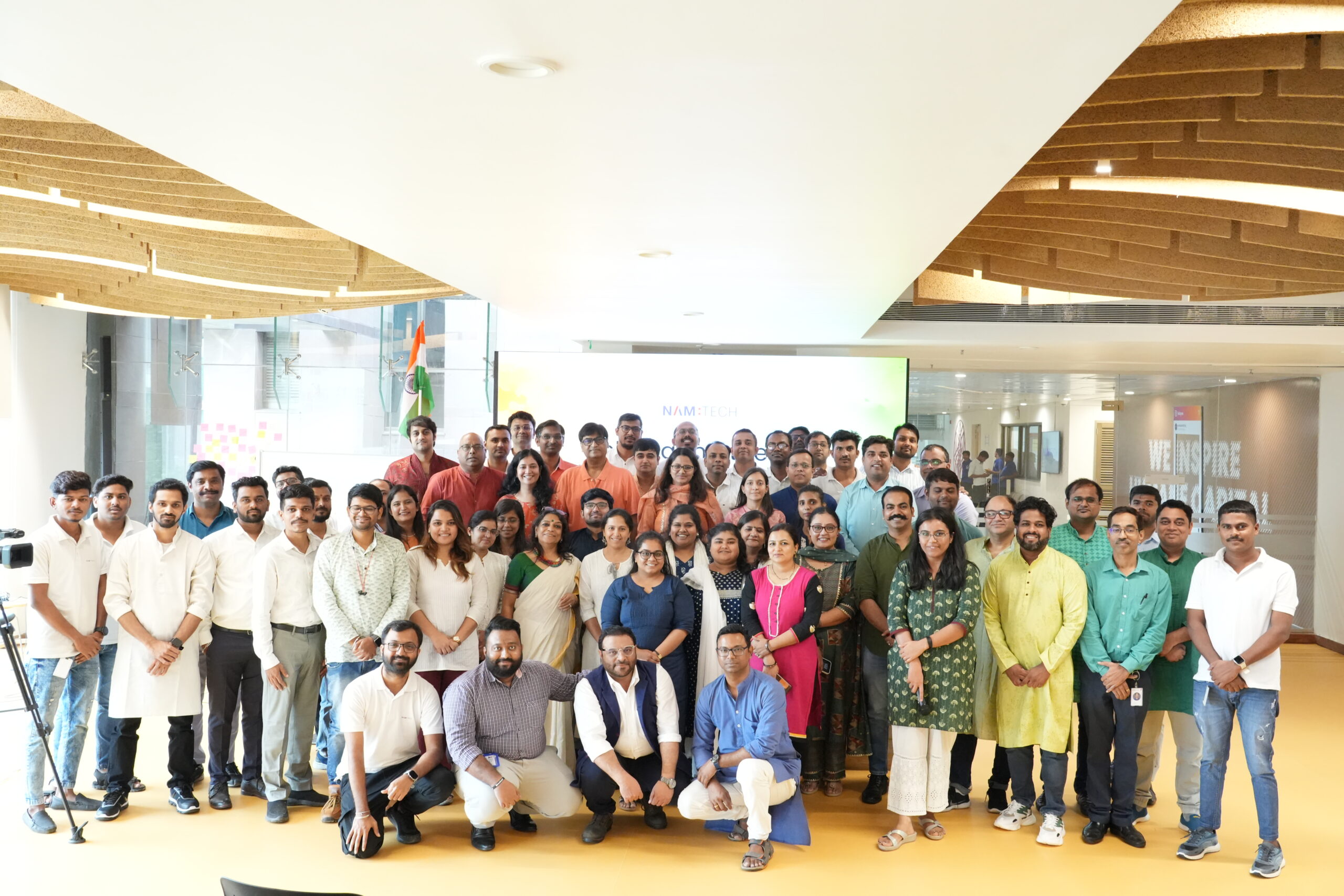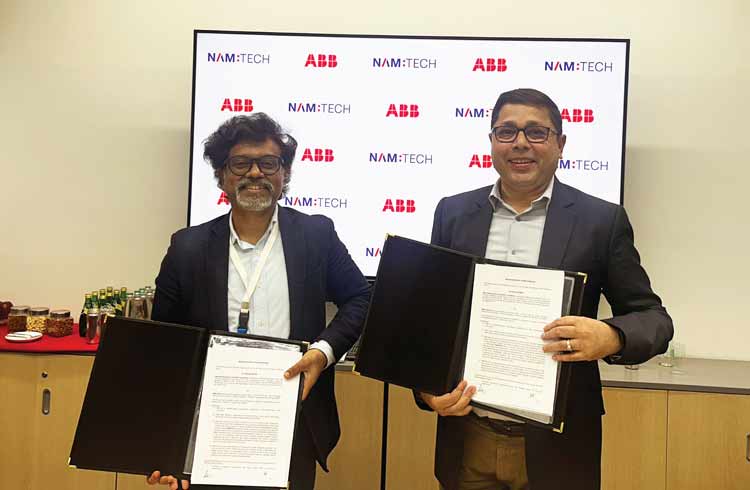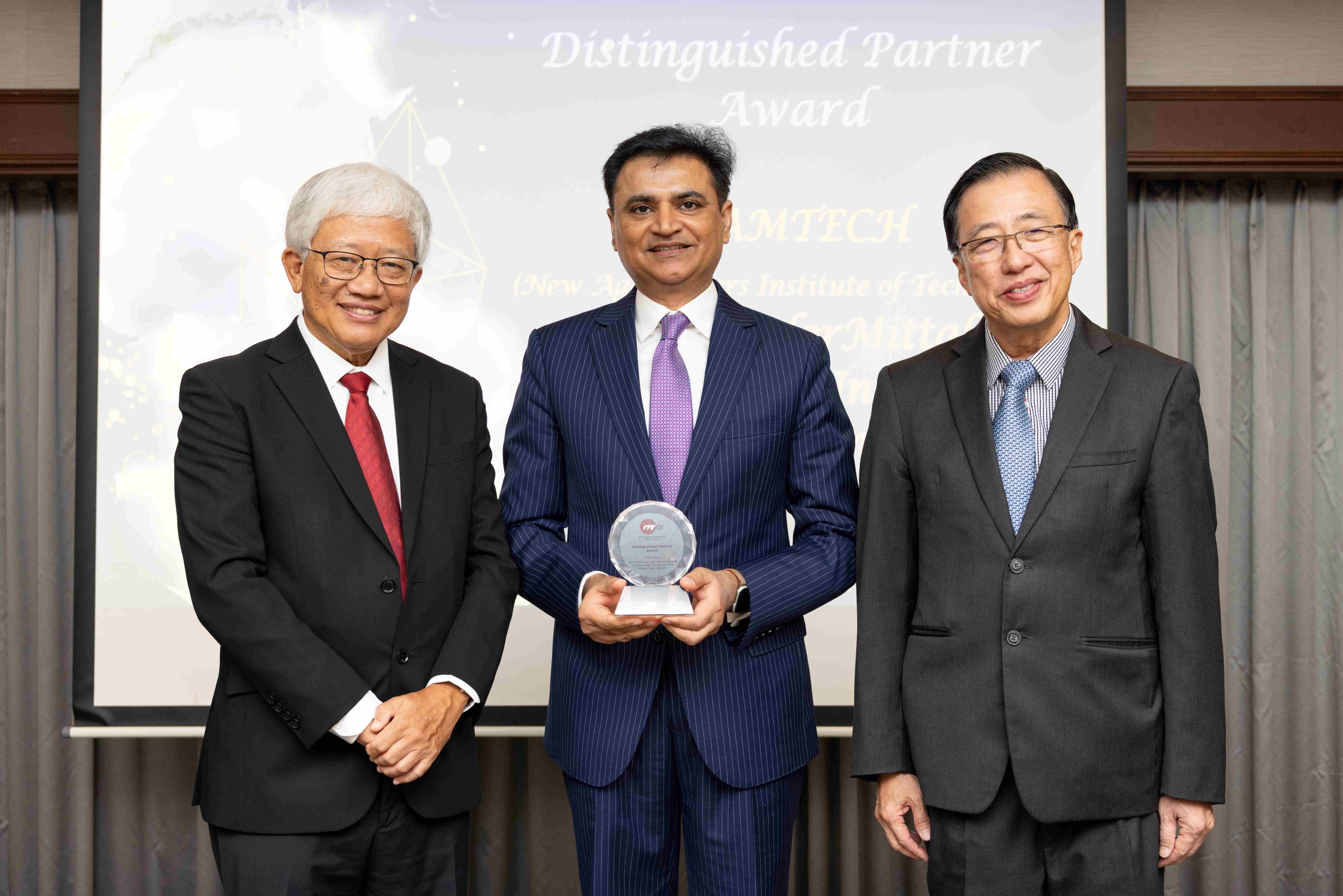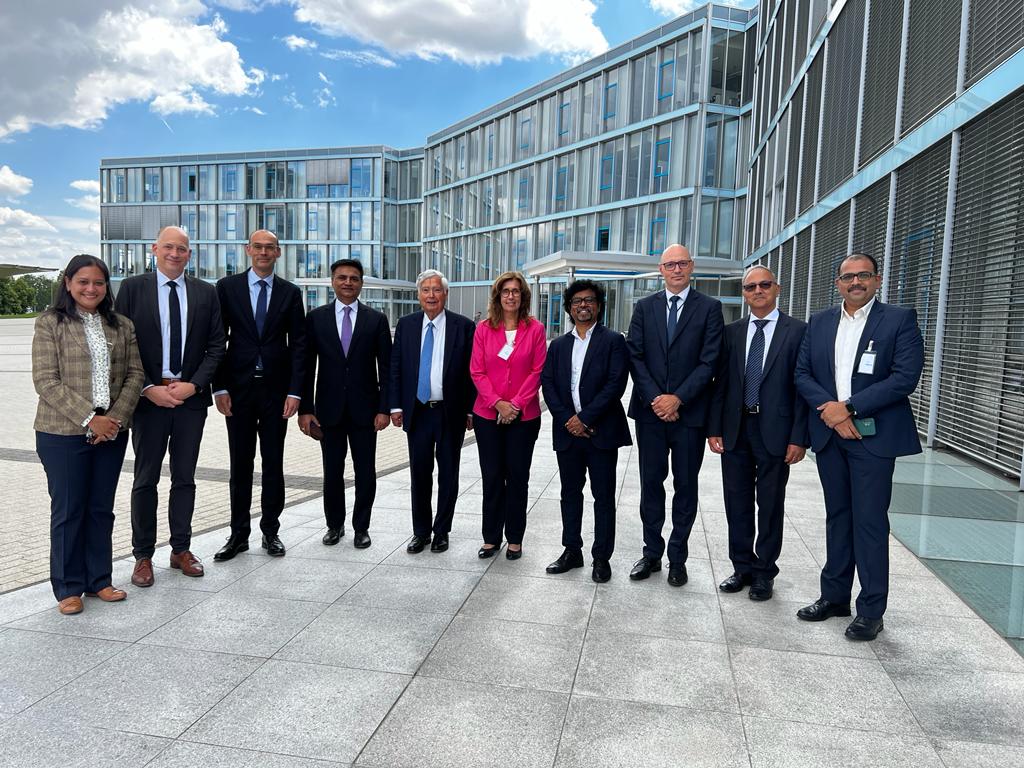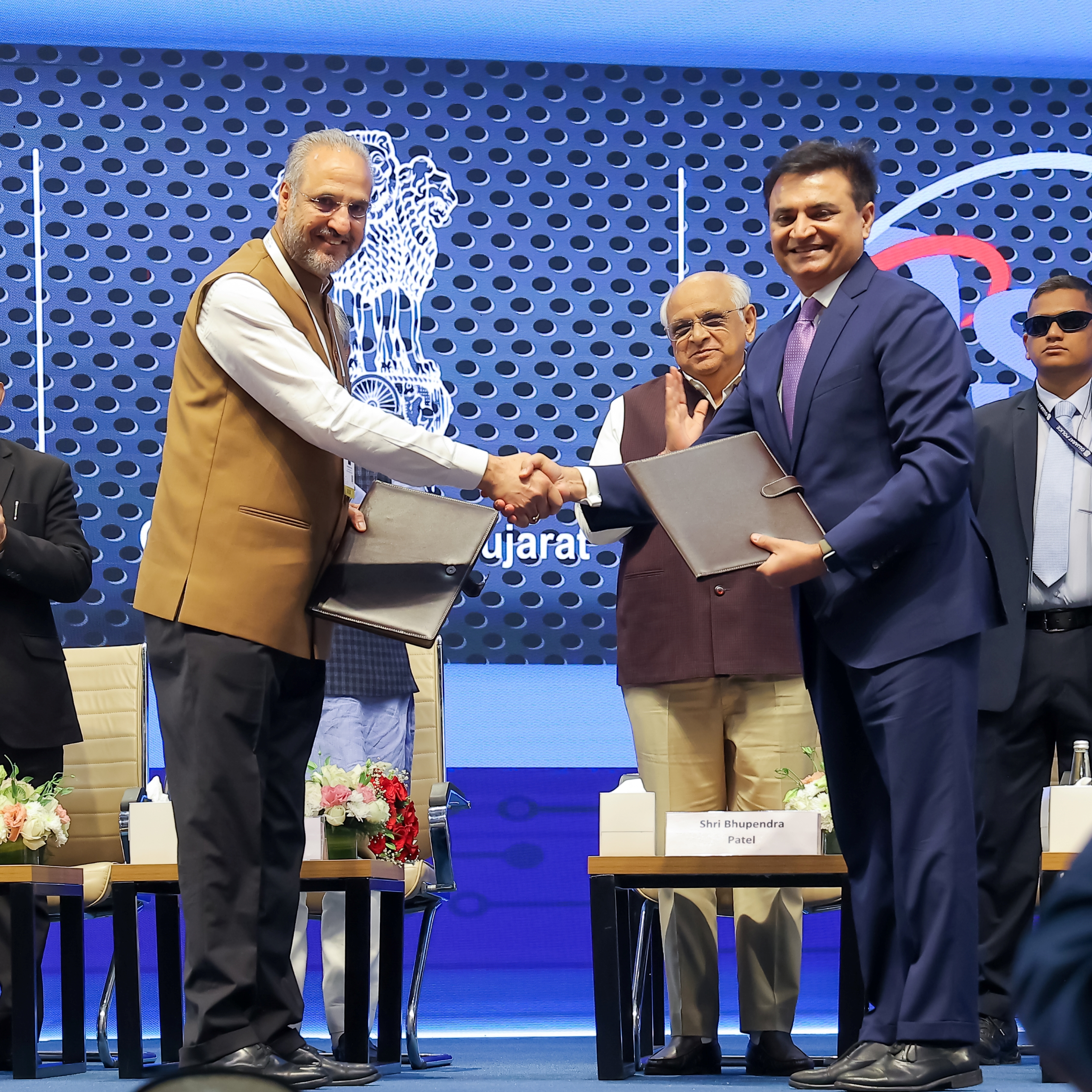According to the McKinsey analysis, Indian companies can boost their operating profits by 40% at less than 10% of the planned expenditure by adopting Industry 4.0 across their manufacturing, supply chain, logistics, and procurement processes. Industry 4.0 or the fourth industrial revolution is revolutionising the manufacturing and production processes with the use of advanced technologies like artificial intelligence, the Internet of Things, big data analytics, and robotics. Currently, the world is standing on the verge of experiencing another industrial revolution and hence Industry 4.0 has become a buzzword. Industries across the globe are set to adopt it and India is also gearing up to embrace this change. To flourish in this technology-driven environment, the country is making an effort to train its workforce with the essential skills and knowledge. Industry 4.0 courses have become a key component of this transformation, providing industry-aligned courses to meet the evolving needs of modern industries.
The Need for Industry 4.0 Courses
As revealed in a study, around two-thirds of the Indian workforce is not skilled and qualified for jobs in Industry 4.0 and a majority of manufacturers are experiencing a shortage of skilled workforce that is severely affecting their profit margins. At present, there is a wide skill gap in terms of skills required for future industries and there is an increasing need for a skilled workforce adept in new technologies. The future of Industry 4.0 lies with adept workforces who are skilled in Robotics, AI & ML, Cloud Computing, Digital Twin, Data Analytics, and other new-age technologies. Thus, India has recognised the urgency of a skilled workforce and hence educational institutions in India are coming up with multiple Industry 4.0 courses and programs that will successfully bridge the skill gaps and drive manufacturing in Industry 4.0.
Key Components of Industry 4.0 Course
The manufacturing sector is a significant contributor to the Indian economy having a share of 17% of GDP in 2023 and is expected to play a big role in making India a developed economy. More than 20% of India’s workforce is currently employed in the manufacturing sector, which needs to be trained as per the Industry 4.0 requirements. Premium educational institutions like NAMTECH have launched Industry 4.0 courses such as iPMP in smart manufacturing and iPTP in automation to groom professionals and make them ready for running future industries.
iPMP in Smart Manufacturing Curriculum
International Professional Master’ Program usually comprises a range of subjects, including but not limited to:
Artificial Intelligence – Students can enhance their skills with specialized modules on AI technology. Artificial intelligence leverages machine learning and deep learning to rapidly process big data and execute various tasks in manufacturing settings. In this domain, students will learn to use algorithms to identify patterns and data structures, applying these insights to derive meaningful conclusions. They will explore four types of AI namely, Reactive AI, Limited Memory, Theory of Mind, and Self-Aware AI.
Cloud Computing – Cloud skills that are covered in Industry 4.0 courses include cloud security, cloud deployment, database management, visualisation, model services, and cloud computing models. It also includes basic concepts of cloud computing, cloud storage management, building cloud security and networks, database skills, DevOps, migration across several platforms, cloud security, machine learning, and AI are among the most sought-after cloud skills taught in this program.
Robotics and Automation – Robotics and automation comprises modules on methods to design, execute, and perform prototype tests, robot operating systems, and effective collaborative processes of team communication and documentation. It provides knowledge on handling industrial methods and machinery. This will further provide automation by boosting production quality, efficiency, speed, and performance by replacing manual, repetitive tasks.
IoT and Connectivity – IoT and connectivity prepare professionals to effectively link devices and systems for data collection and exchange. This involves teaching the use of various communication protocols such as Wi-Fi, Bluetooth, and cellular networks, integrating sensors, and ensuring secure data transmission. Professionals learn to set up networks that enable devices to communicate seamlessly, process data in real-time, and implement IoT solutions for industrial automation, enhancing efficiency and decision-making through interconnected technology.
Big Data and Analytics – Professionals acquire big data and analytics skills to effectively analyse extensive datasets, enabling them to uncover patterns, trends, and insights. This proficiency empowers them to make informed, data-driven decisions, optimizing business strategies and operations. By mastering these tools, they enhance their ability to predict outcomes, identify opportunities, and solve complex problems, thereby driving more accurate and strategic decision-making processes across various industries.
iPTP in Automation Curriculum
International Professional Technologist Program in Automation is a full-time residential program designed to prepare world-class technologists in Automation. The iPTP curriculum provides students with a comprehensive understanding of essential manufacturing principles. This robust foundation equips them to integrate digital skills into a dynamic and high-demand industry, giving them a competitive edge in the graduate job market. The program curriculum includes:
CAD and Mechanical Applications – In this course, students will gain proficiency in CAD (Computer-Aided Design) software, enabling them to create 3D models of mechanical components, assemblies, and products. They will learn to design complex geometries, conduct simulations and analyses, and virtually test the functionality of their designs before manufacturing. Additionally, students will explore assembly drawing, mechanical measurement, and precision engineering.
Pneumatics and Automation – In these topics, students will study electro-mechanical control systems, as well as pneumatics and electro-pneumatics systems, which are extensively used in industrial automation due to their numerous advantages in the workplace. The Pneumatic and Electro-Pneumatic Application module is designed to impart essential knowledge, enabling students to understand the operation of the most common components used in pneumatics and electro-pneumatics.
Cyber-Physical Systems – In this, students will explore Cyber-Physical Systems (CPS), flexible manufacturing systems, human-machine interfaces, and the Internet of Things (IoT). Advances in networking systems enable CPS to be applied to user-specific applications, such as cyber-physical production systems, cyber-physical agricultural systems, and various IIoT-based systems. In this chapter, students will learn the effects of IoT technology and CPS in the advancement and awareness of real-life smart manufacturing.
Hydraulics – Under this chapter, students will learn about hydraulic power transmission systems, control system design, and electro-hydraulic systems.
Electrical & Electronics Applications – Students will gain in-depth knowledge of AC/DC fundamentals, analog and digital electronics, in-circuit measurement, and electrical safety. The objective behind this is to introduce students to basic electrical engineering concepts and analyze linear electric circuits through various theorems and methods.
PLC and Motor Control – Under this students will be introduced to PLC programming & communication, Sensor technology, and Motion control system – Stepper/Servo Motors. Students will learn about the structure of the PLC programmable logic controllers and how they work and are programmed.
Robotics Systems – In this, students will learn about robot programming, robotics applications, i/o interfacing, and Microcontroller. In this students will learn to deal with the design, construction, operation, and use of robots.
Besides these, students pursuing the iPTP program will also be provided with English and communication skills, interpersonal skills, teamwork and decision-making and emotional intelligence.
Conclusion
Industry 4.0 courses are not just educational programs but are the foundation upon which the future of manufacturing and production will rest. Thus, equipping the workforce with Industry 4.0 skills will certainly bridge the skill gap in manufacturing professionals that is required in this new era. These courses mark a significant step in preparing the workforce for a future where technology and automation will be the pioneers. With Industry 4.0 courses, India will set the stage for innovation and leadership in the digital age.
